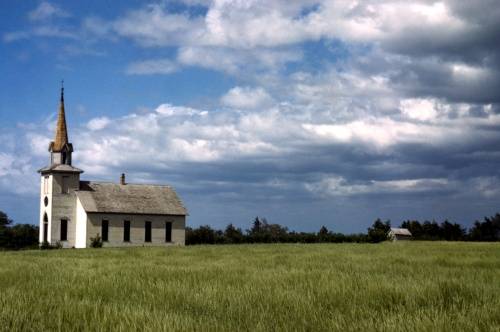18 I also say to you that you are Peter, and upon this rock I will build My church; and the gates of Hades will not overpower it. 19 I will give you the keys of the kingdom of heaven; and whatever you bind on earth shall have been bound in heaven, and whatever you loose on earth shall have been loosed in heaven.” 20 Then He warned the disciples that they should tell no one that He was the Christ. -Matthew 16:18-20
The Church of Jesus Christ is Christ’s, it is not our possession. It is a continuous event of God’s grace for the world. Its being is not generated by an abstract effort of human ingenuity, but instead by the triunity of God’s life for the world in the humanity of Jesus Christ. Even if we are faithless, and we will be, God in Christ is and always will be faithful for the other, for the Church; for He cannot deny Himself. Christoph Schwöbel says it this way:
In a situation which seems to be almost universally characterized by a loss of never on the part of the churches, and where self-preservation seems to be the chief point on the hidden agenda of ecclesiastical existence, it could only be a liberation to see that the Church cannot preserve its existence because it has not constituted itself. That there will always be a Church is an article of faith, but the continued existence of the Church cannot be guaranteed by our programme of Church reform or our programmatic appeals to resist such an attempt. We can only witness to God’s faithfulness who will complete the work he has begun by creating the Church.[1]
Since the Church is a creation, whose existence is extra nos (outside of itself) its aim should not be self-preservation, but like her Lord, it ought to be one where she pours her life out as a drink offering for others. There is a freedom in this, since where the Spirit is there is liberty. There is a freedom in this since the power of the Church isn’t in and from the Church as some type of prolongation of the incarnation; no, the power of the Church is the very power of Godself, the Gospel. And as the Church finds its in-spiration from this evangelical ground, as it moves and breathes from Christ’s breath blown by the Holy Spirit, it has a power to turn the world upside down; to bring reversal where there seems to be only an entropy of death and destruction. When the Church understands its ec-static existence it is operating within the cruciform shape of resurrection power, of the type that can and will move mountains as she bears witness to the reality of the living and triune God.
Next time you feel tempted to become cloistered within your denominational boundaries, don’t! Next time you’re tempted to absolutize the Church as if it is an independent entity in itself, don’t! Recognize that God in Christ has started this whole thing, and that He will be faithful to bring to completion what He started; and this, with or without our geniuses. The aim is to learn how to repose in Christ’s life, and understand that we are continuously receiving our life, as the Church, by the Spirit as He continuously and event[ually] unionizes us with the vicarious-mediatorial-priestly humanity of Jesus Christ; indeed, the Lord and King of the Church!
[1] Schwöbel, “Creature of the Word,” 150 cited by Tom Greggs, Dogmatic Ecclesiology: The Priestly Catholicity of the Church: Volume One (Grand Rapids, Michigan: Baker Academic, 2019), 19.

